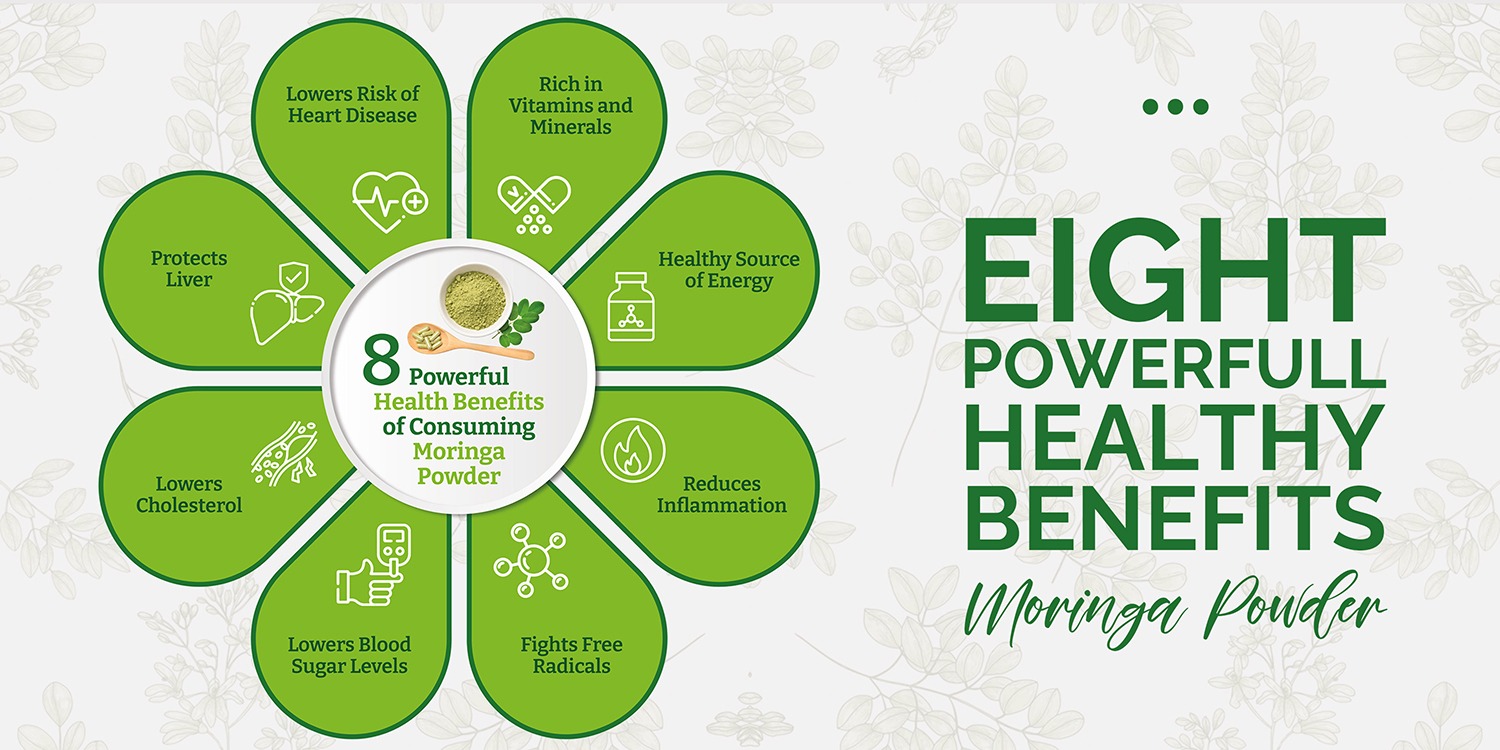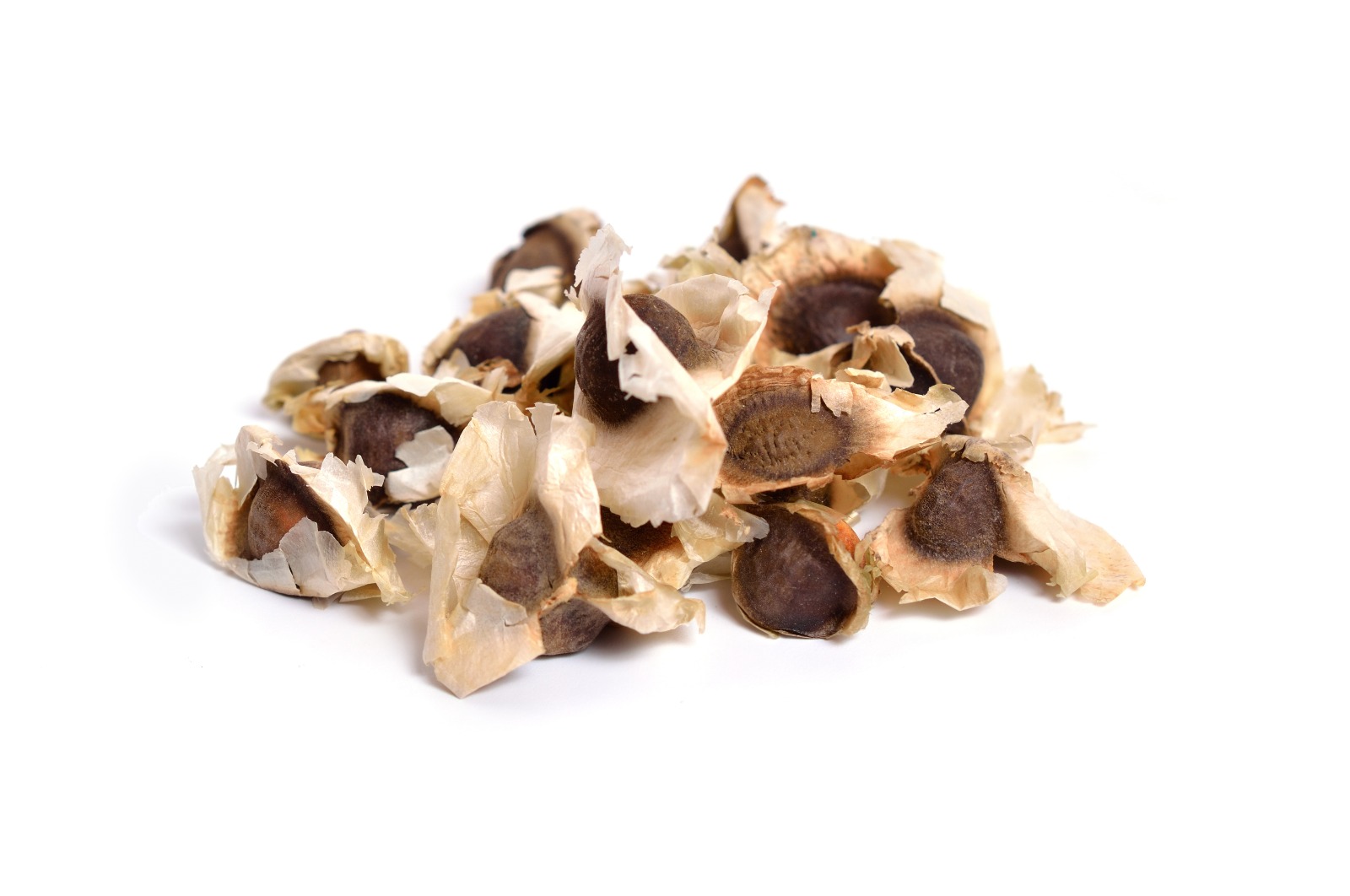Are Moringa Leaves Edible?
Moringa leaves are the leaves from the Moringa oleifera tree, which is a fast-growing, deciduous tree that is native to India. People commonly call it the drumstick tree because of its long, thin pods that grow from its branches. Centuries of traditional medicine and food use have proven Moringa leaves to be highly nutritious and beneficial to health.
The Moringa oleifera tree’s leaves are renowned for their essential vitamins, minerals, and antioxidants. They’re considered to be the most nutritious part of the plant. These nutrients make Moringa leaves an important part of a healthy diet, as they can help to support overall health and well-being. Moreover, Moringa leaves offer a good source of protein and make an excellent food source in times of scarcity. They grow easily and have a long shelf life when dried.

Importance of Moringa Leaves
Moringa leaves are highly valued for their rich nutritional content and numerous health benefits. Some of the key benefits of consuming Moringa leaves include:
- Reducing Inflammation: Moringa leaves contain anti-inflammatory compounds that can help to reduce inflammation in the body, which is important for preventing and managing a range of health conditions, such as heart disease, arthritis, and autoimmune disorders.
- Improving Heart Health: Moringa leaves are a good source of potassium, which is an essential mineral for maintaining healthy blood pressure levels and promoting heart health. Additionally, the antioxidants in Moringa leaves can help to reduce oxidative stress, which is a key factor in the development of heart disease.
- Boosting the Immune System: Moringa leaves contain vitamins and minerals that are essential for a strong immune system, including vitamin C, iron, and calcium. By consuming Moringa leaves, you can help to support your body’s natural defenses and reduce your risk of illness and infection.
- Supporting Healthy Digestion: Moringa leaves contain fiber, which is important for promoting healthy digestion and preventing constipation. Additionally, the anti-inflammatory compounds in Moringa leaves can help to reduce inflammation in the gut, which can help to improve overall digestive health.
- Good Source of Protein: Moringa leaves are a good source of protein, making them an important food source for those following a vegetarian or vegan diet. The body easily absorbs and utilizes the protein in Moringa leaves because it is highly bioavailable.

Edibility of Moringa Leaves
A. Nutritional Value of Moringa Leaves
Moringa leaves are a highly nutritious food, containing a wealth of essential vitamins, minerals, antioxidants, and protein. Some of the key nutrients found in Moringa leaves include:
- Vitamins A, C, and K
- Minerals like potassium, calcium, and iron
- Antioxidants that help to protect against damage from free radicals
- Protein, making it an important food source for vegetarians and vegans
B. Health Benefits of Consuming
Moringa Leaves In addition to being a highly nutritious food, Moringa leaves offer a number of health benefits when consumed regularly. Some of the key benefits of consuming Moringa leaves include:
- Reducing inflammation in the body
- Improving heart health by regulating blood pressure and cholesterol levels
- Boosting the immune system and supporting overall health
- Supporting healthy digestion by improving gut health
C. Learn how to cook Moringa leaves to maximize their health benefits
You can prepare Moringa leaves in many different ways. Some popular methods of cooking Moringa leaves include:
- Raw: Fresh Moringa leaves can be consumed raw, either as a snack or added to salads and other dishes for a nutritional boost.
- Cooked: Moringa leaves can be cooked as a side dish or added to soups and stews. They have a slightly bitter taste, which can be balanced out by adding spices or other seasonings.
- Dried: Dried Moringa leaves can be rehydrated and added to dishes or consumed as a tea. They are also available in powder form. Which can be added to smoothies, soups, and other dishes for a nutritional boost.
Regardless of how you choose to prepare Moringa leaves, incorporating them into your diet is a simple and effective way to enjoy the numerous health benefits that this nutritious food has to offer.
Precautions and Risks of Eating Moringa Leaves
A. Possible Side Effects
Be aware that while Moringa leaves are generally safe to consume in moderation, there are some possible side effects to consider. Some people may experience digestive discomfort, such as bloating, gas, or stomach cramps, when consuming Moringa leaves. In addition, some individuals may experience allergic reactions, such as skin rashes or itching, when consuming Moringa leaves.
B. Interactions with Medications
Moringa leaves can interact with certain medications, including blood thinners, diabetes medications, and hormonal medications. It is important to speak to your healthcare provider before adding Moringa leaves to your diet if you are taking any medications.
C. Allergies
In some cases, individuals may be allergic to Moringa leaves. If you experience symptoms such as skin rashes, itching, or swelling after consuming Moringa leaves, it is important to seek medical attention immediately. If you have a history of allergies or are unsure if you are allergic to Moringa leaves, it is best to speak to your healthcare provider before adding them to your diet.
While Moringa leaves offer numerous health benefits, it is important to be aware of potential side effects, interactions with medications, and allergies. If you have any concerns, it is best to speak to your healthcare provider before incorporating Moringa leaves into your diet. By doing so, you can enjoy the numerous health benefits that this nutritious food has to offer while minimizing the risks.

Overview
Moringa leaves are a highly nutritious food, offering a wealth of essential vitamins, minerals, antioxidants, and protein. They offer numerous health benefits, such as reducing inflammation, improving heart health, boosting the immune system, and supporting healthy digestion. You can consume Moringa leaves raw, cooked, or in dried form, offering versatility in adding them to your diet.
In conclusion, Moringa leaves are a safe and nutritious food when consumed in moderation. It is important to be aware of potential side effects, interactions with medications, and allergies. Speak to your healthcare provider if you have any concerns. By incorporating Moringa leaves into your diet, you can enjoy the numerous health benefits that this nutritious food has to offer. So, if you’re looking for a simple and effective way to improve your overall health. Consider adding Moringa leaves to your diet today!
References:
- “Moringa: Health Benefits, Uses, and Risks” article by the Medical News Today – https://www.medicalnewstoday.com/articles/323221
- “Moringa: An Underutilized Superfood with Multifaceted Medicinal Benefits” published in the journal “Frontiers in Plant Science” – https://www.frontiersin.org/articles/10.3389/fpls.2015.00454/full
Moringa With Barry stores offer a variety of moringa products. These include: Moringa Powder, Moringa Tea, Moringa Capsules and Moringa Oil.
Read more:
Can Moringa Cure Sexually Transmitted Diseases?
Moringa Oleifera Capsules: Benefits and Uses
Moringa and Lavender Soap: A Natural Skincare Combination
Moringa and Ginger Tea: Health Benefits and Preparation
Moringa and Matcha: Exploring the Superfood Powers of Both





1 Comment
Great article!